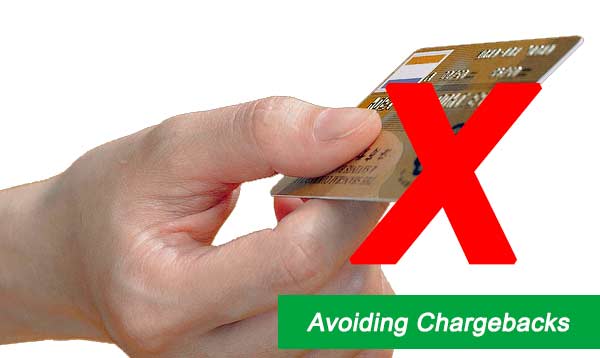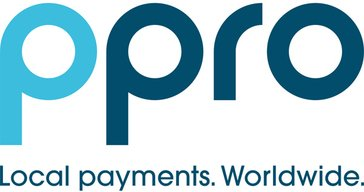Avoiding Chargebacks
Avoiding Chargebacks Table of Contents
- Avoiding Chargebacks
- What Are Chargebacks?
- Tips For Merchants To Avoid Credit Card Chargebacks
- Follow Processor Protocol
- Use A Clear Payment Descriptor
- Overview of Avoiding Chargebacks
- Best Payment gateway Solution by Rating
- Best Payment gateway Solution by Price
- Best Payment gateway Solution by Rated Features
- Check Your Payment gateway Solution Offers Round The Clock Support
- Make Sure Your Payment gateway Solution Offers The Features You Need
- Best Payment gateway Software Solution Verdict
- Payment gateway Software Frequently Asked Questions
- What is the best Payment gateway Solution?
- What is the cheapest Payment gateway Solution?
- Is there a free Payment gateway Solution?
- View all of the top Payment gateway Software Solutions
- Payment gateway Alternatives
- Payment gateway VS Side by Side Comparisons

Avoiding Chargebacks
What Are Chargebacks?
Chargebacks are a type of refund request that a merchant processes for their customers. A chargeback is simply a return back of funds to an account holder of a merchant, specifically a credit card processor. Chargebacks can occur for a number of reasons, most often because the processors or merchants failed to process the customer's orders correctly, or the transactions went through the merchant before the customer had enough credit to make another transaction with the merchant. Another common reason is that the customer requested a refund and the merchant is unsure whether the refund was legitimate. In this case, the merchant will chargeback the client for the amount of the refund, as well as additional charges such as late fees and interest.
Chargebacks also represent a major problem for consumers. Because Chargebacks are not recognized as legitimate by the credit card processors or merchants, this situation presents a double standard for both the merchants and the consumers. The Chargebacks create doubt in the minds of consumers about the legitimacy of the merchants and the reliability of the companies that process their credit cards. The lack of acknowledgment from the merchants and processors that they are processing Chargebacks represents a clear lack of responsibility on the part of these third party institutions and an opportunity for the merchants to take advantage of their clients by subjecting them to unnecessary and unfair practices.
Chargebacks can be recognized as a fraudulent chargeback if the 'gatekeeper' at the merchant or the processor does not respond appropriately to the consumer's inquiry. If an individual receives a Chargeback notification and believes that the credit card information provided to the bank was improperly authorized or inaccurate, he or she must report the Chargeback to the credit bureaus, or he or she may be subject to disciplinary actions. Chargebacks are a serious issue that should not be ignored and must be reported immediately. With millions of Chargebacks being processed per day, and the risks involved for both the consumer and the financial institution, it is imperative that Chargebacks be reported immediately by the credit bureaus.
Tips For Merchants To Avoid Credit Card Chargebacks
If you are a merchant and you have been hit with one or more credit card chargebacks, you may be wondering what exactly your options are. There are actually quite a few different things that you can do in order to try to remedy the situation, but some of these options will actually end up costing you more money than they are worth. Some merchants will attempt to negotiate new terms with their credit card companies. Unfortunately, this rarely works out because the credit card company is not willing to make any sort of concession in order to keep their client business.
Many times it is the merchants themselves that find themselves in the hot seat when it comes to credit card chargebacks. They have taken on too many clients, opened up too many stores and signed up for too many lines of credit that they get stopped by a credit reporting agency. The reporting agencies have become increasingly aggressive in how they judge credit risk and the result is that many merchants feel that they are being unfairly punished for their mistakes. It is best if you do everything you can to avoid getting a chargeback, as it is an unnecessary hassle for both you and the merchant. Make sure you keep accurate records of all your sales transactions and carefully review your records when something unexpected occurs. You can also contact the credit card company to dispute charges that you feel are incorrect, but the chances of successfully doing this are not great.
In some cases, the easiest way to avoid being the subject of credit card chargebacks is simply to close your business accounts. Yes, it is true that this will likely result in a drop in your credit score at the beginning, but over time it will gradually improve and you will find that your credit report is accurate enough to allow you to accept more credit card transactions. When you close accounts, it is best to inform the merchant account holder as well, especially if you have had a good relationship with them in the past. This way, if there is a problem, they can resolve it without you having to escalate the matter to the other party.
Follow Processor Protocol
Every credit card processor has it's own protocol when it comes to taking credit cards. It's important that merchants know these different protocols and follow them closely. This information helps reduce the risk of chargebacks, a common problem when conducting an online merchant business. Each credit card processor has it's own list of eight ways to reduce the risk of chargebacks including: never taking payments from a customer where the customer has used more than one credit card in the past 30 days; instructing customers to click 'Cancel' instead of entering their credit card information at the point of sale; instructing customers to input the security information only once during the entire transaction. Credit card processors will usually provide additional advice for online merchants on how to reduce the risk of chargebacks.
By following processor protocol, online merchants reduce the risk of chargebacks and increase sales. When a merchant has a question about their transactions, it's the processor that acts as a dispute resolution clearing house. The processor sends a report to the merchant outlining the reason for the dispute. If the reasons justify blocking the transaction, the payment processor may deny the transaction and refer the merchant to the merchant account issuer to file a dispute.
Use A Clear Payment Descriptor
To avoid chargebacks from customers, it is necessary that you have a clear and detailed payment descriptors in place. This is very important when sending payments to your customers. A clear chargeback descriptor should contain the following information: date, invoice number, amount owed, status (open, paid, or closed), and an email address for follow up. The customer service representative should use this information to contact the customer with the results of their investigation. If the chargeback remains in process after 30 days, your company may be subject to discipline by credit bureaus, your bank, or other third party processors, and/or collection agencies.
Chargebacks can be a pain for both you and your customers. Many times, customers will try to 'game' the system by submitting bogus charges to their credit card companies. To avoid having to deal with this, you should have an explanation of your return policies and procedures. Also, if you accept payment descriptors other than those listed above, be sure to provide your customer service department with the names of those other payment descriptors and how they will be used. You should also ask if you can have the customer service department to send you a list of chargebacks or other actions that may result from using incorrect chargebacks.
When a customer disputes an item on your credit card statement, it may take several days before the dispute is resolved. During this time, the chargeback may remain in the process and may result in additional credit card account activity. As a business owner, you want to avoid having to deal with credit card account actions such as chargebacks. For this reason, you should always make sure that you and your customer service staff are well-informed about the use of clear payment descriptors and how to respond to and remedy credit card account issues promptly.
Scroll down to read our indepth Payment Platforms guide. What you should know, Payment Platforms features, price plans and support. Pros and Cons of Payment Platforms as a payment gateway, everything is explained below.
Overview of Avoiding Chargebacks
Spreedly is a software company that specialises in payment-gateway software for small to enterprise level businesses.
Spreedly is listed as the best payment-gateway software related to Payment Platforms. Spreedly was founded in 2008 in Durham, NC and currently has over 79 employees registered on Linkedin.
Best PAYMENT GATEWAY Solution By Rating
Get our stories delivered
From us to your inbox weekly.
 Spreedly
Spreedly
 Simpl
Simpl
 allpago
allpago
 EBizCharge
EBizCharge
 Bolt
Bolt
 PayLane
PayLane
 Paytm Business
Paytm Business
 Apple Pay
Apple Pay
 Paystack
Paystack
 SquareUp Payment Method
SquareUp Payment Method
 Ingenico ePayments
Ingenico ePayments
 PayMart
PayMart
 Paymill
Paymill
 Yapstone
Yapstone
 TRUSTLY
TRUSTLY
 Wirize
Wirize
 Zotapay
Zotapay
 Zooz
Zooz
 Zipmark
Zipmark
 XTRM
XTRM
